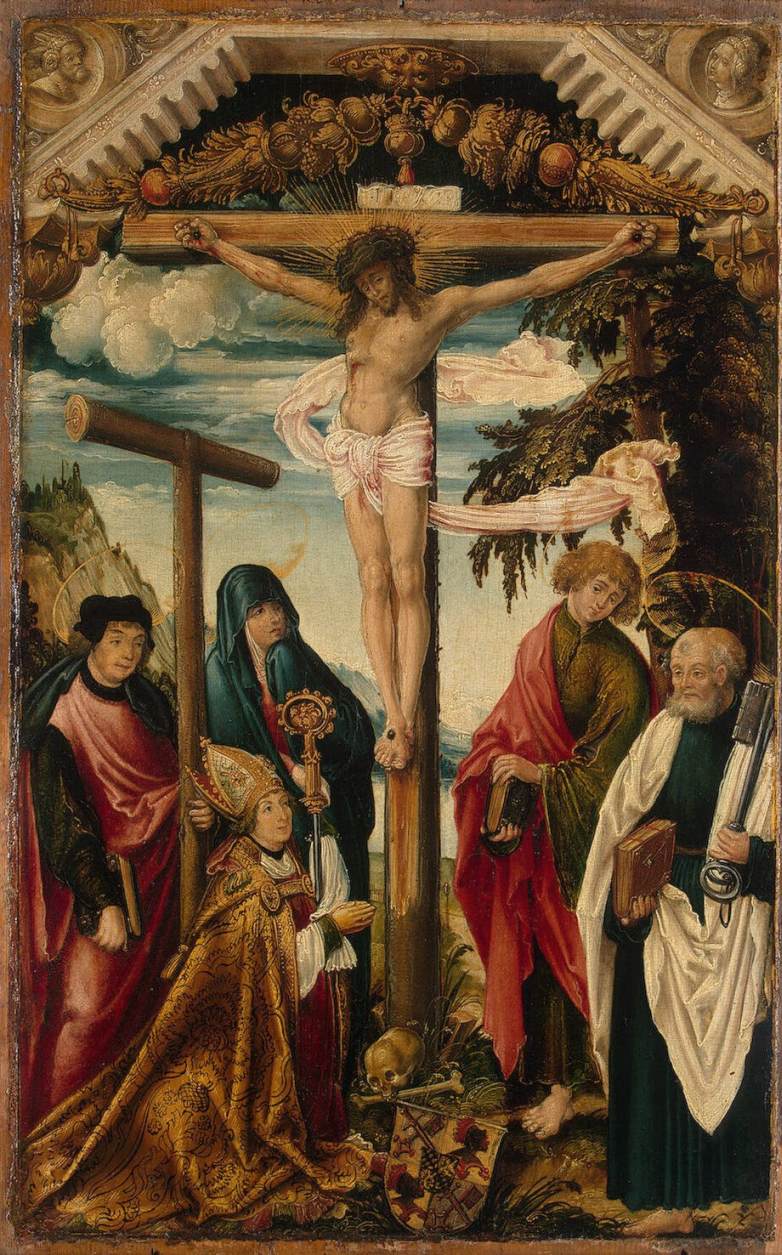Description
The painting "Crucifixion with Saints and Donor" by the artist Hans Wertinger is a fascinating work that deserves to be explored in detail. Originally 53 x 82 cm in size, this piece captivates viewers with its distinctive artistic style, carefully crafted composition, and masterful use of color.
In terms of artistic style, Wertinger belongs to the late German Renaissance, and his work reflects the influence of artists such as Albrecht Dürer and Hans Holbein the Younger. However, Wertinger manages to develop a style of his own that stands out for his attention to detail and his ability to capture human expression in a realistic and emotional way.
The composition of the painting is remarkably balanced and harmonious. In the center is the figure of the crucified Christ, surrounded by a series of saints and angels. The arrangement of the figures creates a sensation of movement and depth in the scene, while the donor is in a lower plane, in an attitude of prayer. This hierarchical arrangement reinforces the importance of the figure of Christ and the role of the donor in the work.
The use of color in this painting is particularly striking. Wertinger uses a rich and varied palette, with intense tones that highlight the drama of the scene. Warm, vibrant colors such as red and gold are used to highlight the figure of Christ and saints, while darker, cooler tones are used in the background to create contrast and depth.
The history of the painting is also intriguing. It was created in the 16th century as part of an altarpiece for a church in Bavaria, Germany. The work shows the religious devotion of the time and the importance of the crucifixion as a central theme in Christian art. Although the donor of the work is unknown, his presence in the painting demonstrates his contribution to the church and his desire to be remembered in the context of faith.
In addition to these more well-known aspects, there are some lesser-known details about this painting. For example, it is believed that Wertinger may have used live models to capture the expression and anatomy of the figures. This would have been an innovative approach at the time and would have contributed to the authenticity and realism of the work.
In short, the painting "Crucifixion with Saints and Donor" by Hans Wertinger is a masterpiece of the late German Renaissance. Its distinctive artistic style, its balanced composition, its masterful use of color and its fascinating history make it a piece of art that deserves to be appreciated and studied in detail.

